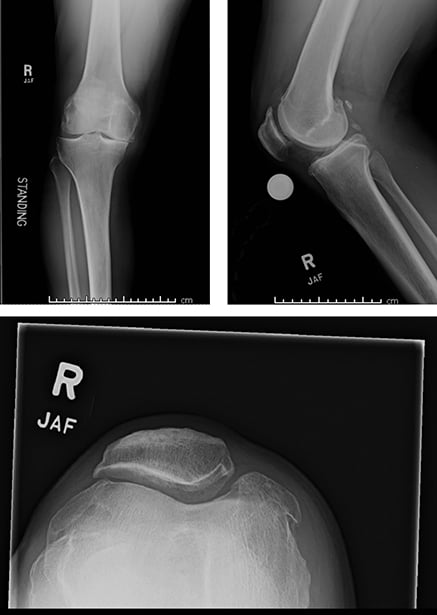How Impending Knee Replacement Surgery Took One Arthroplasty Surgeon by Surprise
Fig. 1 Three preoperative radiographic views from Kevin J. Bozic, MD, MBA, of the right knee showing severe medical joint space narrowing and patellofemoral osteoarthritis.
COURTESY OF KEVIN J. BOZIC, MD, MBA
This blog is the first of a two-part series that originally appeared in AAOS Now (July 2019). It shares an interview with Dr. Kevin J. Bozic, MBA, about his own experience with total knee arthroplasty (TKA) and how his decision process and treatment affected him as a patient. In August, our blog will share the second part of the interview which explores, not only his own post-operative patient journey, but how the role reversal from physician-to-patient influenced his interaction with the surgical patients he treats today. The interviews were conducted by Meredith L. Grogan Moore, BS*.
Kevin J. Bozic, MD, MBA, is a renowned joint replacement surgeon in Austin, Texas. After graduating from the Harvard Combined Orthopaedic Residency Program, he trained in adult reconstructive surgery at Rush University Medical Center in Chicago. Widely published across orthopaedic and health services journals, he is a pioneer in value-based health care. He is also chair of the Steering Committee for the American Joint Replacement Registry. A few years ago, Dr. Bozic found himself on a path to reconstructive surgery of his own knee. From the outset, unique considerations emerged. His preoperative physician-turned-patient experience is illuminating.








